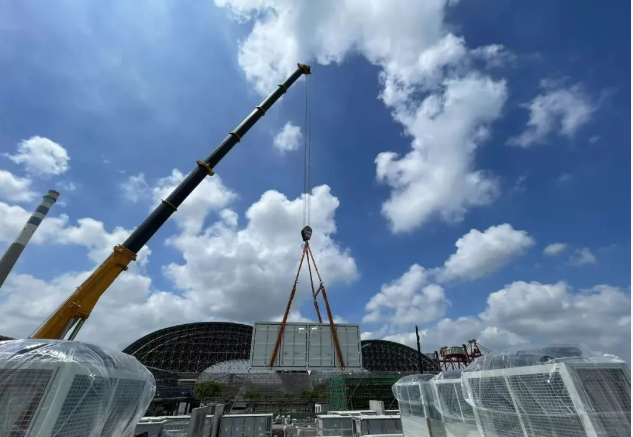
The Australian government has provided a $2.5 million grant to Perth based energy storage company Avess Energy to explore vanadium flow battery (VFB) manufacturing opportunities in the Indo-Pacific region.
Avess Energy, which was founded in 2020 and specialises in VFBs, also known as vanadium redox flow batteries (VRFBs), is the 50 per cent majority stakeholder of South Korean VRFB research and development company Korid Energy, giving it access to Korid’s 25 kilowatt (kW) VRFB stack technology.
Avess announced on Tuesday that it had been awarded a $2.5 million grant under the Commonwealth government’s Quad Clean Energy Supply Chain and Diversification Program, snappily known as QCESCDP.
The program is an outworking of the Quadrilateral Security Dialogue, better known as the Quad, the diplomatic partnership reestablished in 2017 between Australia, India, Japan, and the United States. QCESCDP was announced at the 2024 Quad Leaders’ Summit in May 2023 as part of a broader commitment to develop and diversify clean energy supply chains across the Indo-Pacific.
As part of the QCESCDP, Australia committed to invest $50 million to develop and diversify clean energy supply chains in the region.
The $2.5 million grant, the grant amount available under the program, will support Avess Energy and Korid Energy in assessing the feasibility of VFB manufacturing in the region. The grant covers up to 95 per cent of eligible expenditure.
Specifically, the assessment will investigate the possibility of automating VFB cell stack manufacturing in South Korea, and possibly also the Philippines.
“We’re extremely pleased to be recognised by the Commonwealth government as a potential contributor to a diversified supply chain for long-duration energy storage technologies,” said Young Yu, Avess managing director.
“Working alongside our subsidiary Korid Energy, we aim to deepen collaboration in South Korea, while exploring future opportunities in the Philippines.
“At the same time, we’re drawing on our regional experience to build an Australian VFB supply chain and contribute to Australia’s decarbonisation goals by establishing onshore battery manufacturing.
“Stronger, more efficient supply chains – supported by automation and advanced manufacturing – are essential to the scaling of long-duration VFB energy storage and supporting decarbonisation efforts across Australia and the Indo-Pacific.”
This first round of QCESCDP allocated nearly the full $25 million available, and included grants to 12 entities across Australia, dominated by six universities. The full list of recipients can be viewed here.
Of the 12 projects awarded, 5 target solar supply chains, 4 target battery supply chains, 2 target electrolyser supply chains, and one targets critical mineral recycling from battery and electrolyser waste.
All projects to receive QCESCDP funding must be delivered jointly between Australian organisations and Indo-Pacific organisations.


